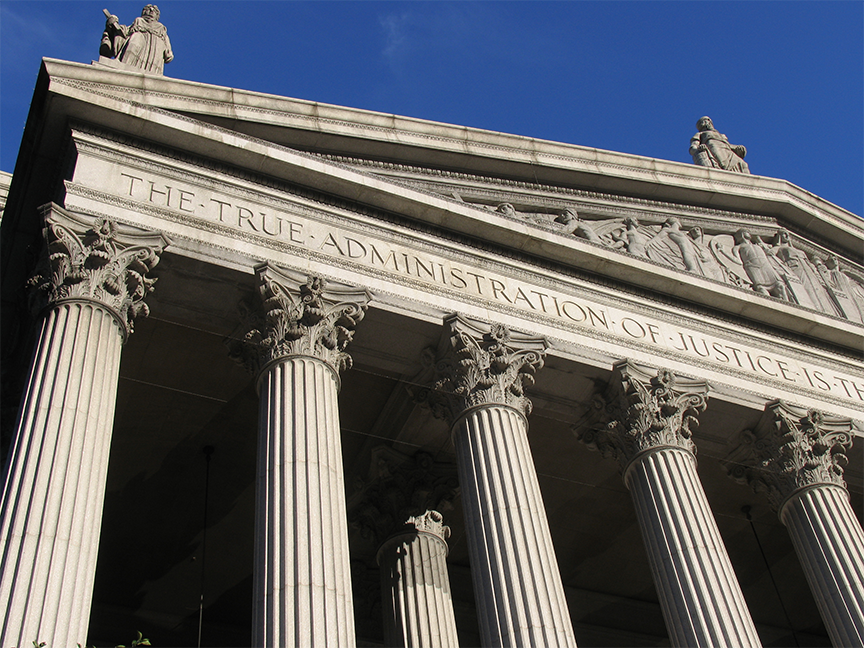
If you’ve attempted to purchase an at-home COVID-19 test recently, you may have walked away from the store empty-handed. There’s been a nationwide shortage of at-home tests that hit at nearly the same time as the Omicron variant began to peak in almost every state.
Due to the extreme transmissibility of the Omicron variant, hospitals have been overrun with admissions, and the number of people being infected has reached record numbers.
A mandate struck down. In an attempt to get a handle on overrun ICUs, staffing shortages and the death toll, President Biden had instituted a mandated vaccine-or-test plan for businesses with over 100 people. However, another blow was dealt to the Biden administration as the U.S. Supreme Court struck down the Occupational Safety and Health Administration (OSHA) Requirement. Even though the Supreme Court kept the mandate in place for healthcare workers, it was a crushing defeat for an administration dead-set on getting as many people vaccinated as possible.
Supply chain challenges to follow. The Biden administration seems to remain determined to push for the nearly 35 million unvaccinated Americans to get their shots.
Because vaccines can no longer be required, in most cases businesses and organizations rely on regular testing to control the virus’ spread. However, with at-home testing kits becoming scarce, desperation is taking over. Emergency rooms are being flooded with people seeking tests. The moment that at-home tests do hit any store shelves, they’re purchased en masse, reminiscent of the rush on toilet paper from early in the pandemic.
The Supreme Court’s order may have sounded like welcome news to businesses that worried about staffing shortages and the personal freedom to stay vaccine-free; however, it will likely spell dire consequences for a personal protective equipment (PPE) supply chain already hampered by COVID.
The Supreme Court’s decision could have a ripple effect on the companies that produce the tests, the shipping companies and trucking companies that deliver those tests to stores, and the store employees who sell the tests to customers. Material shortages also play a significant role in the scarcity of at-home tests.
500 million and counting. President Biden recently announced that he planned on supplying 500 million at-home COVID tests to the public, which, while sounding like a welcome relief to a nation starving for testing options, is having its own ramifications.
Testing suppliers recently told CNBC that Biden’s promise of 500 million at-home tests was delaying their shipments, despite the President emphatically stating that existing orders and agreements would not be affected. Ramping up manufacturing of tests to meet Biden’s promise and additional demand from Omicron’s spike has put extreme pressure on businesses already struggling with short staffing and lack of supplies.
In what seems to be something of a cyclical nightmare, with manufacturing plants and trucking and logistics companies not being required to mandate vaccines, they will likely experience increased staffing shortages as COVID-19 continues to infect workers.
Negative test needed. Now that the mandate for private businesses is off the table, employers will likely require more testing in an attempt to control the spread of the virus. President Biden implored private companies to consider their own mandates for their employees still, but it remains to be seen how many businesses will choose that mitigation route.
Negative tests are also required in many educational institutions, airlines, and even restaurants and entertainment venues in some states. All the requirements are contributing to the testing shortage. However, many firmly believe that if the negative test requirements for certain places and events were removed, the COVID spread would worsen.
Combating the shortage. Quick solutions are needed, since the continued shortage of at-home tests seems inevitable. Testing manufacturers are attempting to ramp up production, despite setbacks with staffing and shipping interruptions in response to the demand.
New test companies are awaiting FDA approval to bring additional rapid-test options to the market. With authorizations for new tests, the hitch in the supply chain will hopefully begin to ease by the end of the month, if not mid-February. One of the nation’s largest at-home test suppliers, Abbott, is continuing to ramp up its supply. It aims to supply 70 million BinaxNOW rapid tests in January, an increase from the 50 million it provided to the U.S. in December.
While the Supreme Court strike-down of the vaccine-or-test mandate might seem like a victory to some private businesses, a domino effect is likely for the supply chain. People clamoring for tests will have to keep a close eye on supply chain updates and plan accordingly.
Patrick Callaway is chief executive officer of Octofund Group.







